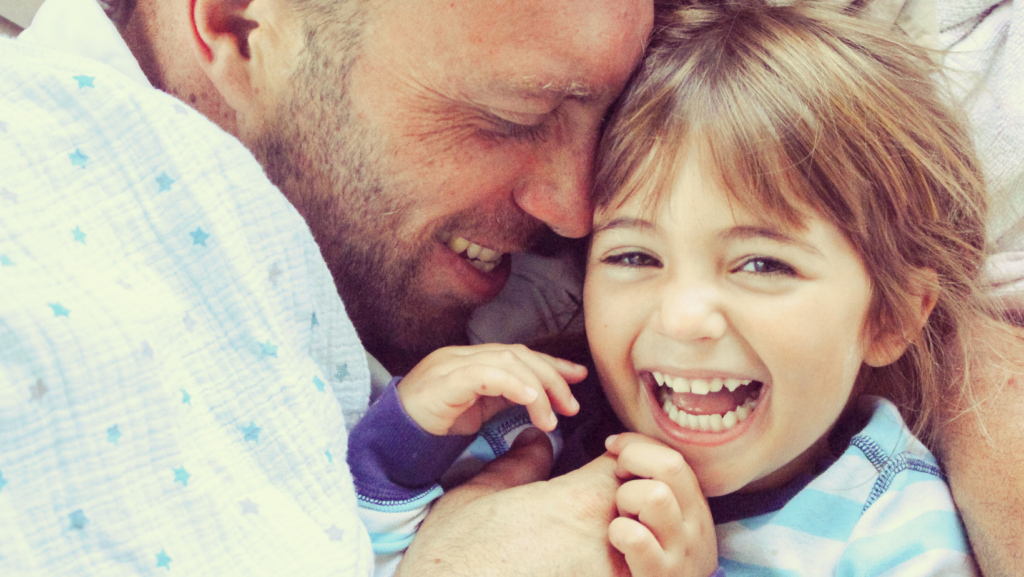Parenting styles play a crucial role in shaping children’s development and future behavior. In AP Psychology studies four distinct parenting approaches emerge based on Diana Baumrind’s groundbreaking research: authoritative authoritarian permissive and uninvolved parenting.
Understanding these parenting styles isn’t just academic knowledge – it’s essential for comprehending human development and family dynamics. Each style combines varying levels of responsiveness and demandingness creating unique environments that influence children’s emotional social and cognitive growth. AP Psychology students often explore how these different approaches affect children’s outcomes from self-esteem and academic performance to relationship-building abilities and mental health.
Parenting Styles AP Psychology
Diana Baumrind’s parenting styles model categorizes parental behavior based on two key dimensions: responsiveness and demandingness. These four distinct approaches shape children’s development through varying combinations of warmth, control, communication patterns and behavioral expectations.
Authoritative Parenting Style
Authoritative parents combine high responsiveness with high demandingness to create a supportive yet structured environment. These parents:
- Set clear rules with logical explanations for consequences
- Listen to children’s perspectives during decision-making
- Offer emotional support through open communication
- Maintain consistent boundaries while showing flexibility
- Encourage independence within appropriate limits
Authoritarian Parenting Style
Authoritarian parents demonstrate high demandingness but low responsiveness through strict control. Key characteristics include:
- Enforcing rigid rules without explanation
- Expecting immediate obedience from children
- Limiting two-way communication
- Implementing punitive disciplinary measures
- Prioritizing order over emotional nurturing
Permissive Parenting Style
Permissive parents show high responsiveness paired with low demandingness in their approach. This style features:
- Setting minimal behavioral expectations
- Avoiding conflict with children
- Granting excessive freedom in decision-making
- Providing limited guidance or structure
- Establishing few consistent boundaries
- Demonstrating minimal emotional engagement
- Offering limited supervision or guidance
- Showing indifference to children’s needs
- Providing basic necessities only
- Maintaining psychological distance from children
Key Research and Theories in Parenting Styles
Empirical research on parenting styles emerged in the 1960s through systematic observational studies. The field has evolved significantly with contributions from multiple researchers examining the impact of different parenting approaches on child development.
Diana Baumrind’s Contributions
Diana Baumrind’s groundbreaking research in 1966 established the foundation for understanding parenting styles. Her longitudinal studies at the University of California, Berkeley involved observing 100+ preschool children through naturalistic methods. Through this research, Baumrind identified three initial parenting patterns:
- Structured parent-child observations revealed distinct behavioral patterns
- Data collection included interviews, home visits, psychological assessments
- Research demonstrated correlations between parenting approaches and child outcomes
- Studies focused on parental control, communication patterns, maturity demands
| Study Year | Research Focus | Number of Participants | Key Findings |
|---|---|---|---|
| 1966 | Initial patterns | 103 preschoolers | Identified 3 styles |
| 1971 | Pattern validation | 134 children | Added neglectful style |
| 1978 | Long-term effects | 164 adolescents | Confirmed impact |
- Maccoby and Martin (1983) introduced the two-dimensional framework of responsiveness and demandingness
- Steinberg’s research (1990s) connected parenting styles to adolescent outcomes
- Cross-cultural studies by Chao (1994) examined Asian parenting patterns
- Longitudinal research by Darling and Steinberg (1993) explored contextual influences
| Researcher | Focus Area | Key Contribution |
|---|---|---|
| Maccoby & Martin | Framework refinement | Two-dimensional model |
| Steinberg | Adolescent outcomes | Academic achievement links |
| Chao | Cultural variations | Asian parenting concepts |
| Darling | Context influence | Environmental factors |
Impact of Parenting Styles on Child Development
Research demonstrates distinct correlations between parenting styles and children’s developmental outcomes across multiple domains. Longitudinal studies reveal that parenting approaches significantly influence children’s emotional regulation, social competence, academic achievement and behavioral patterns.
Emotional and Social Effects
Parenting styles shape children’s emotional development and social interactions in measurable ways:
- Authoritative parenting correlates with higher emotional intelligence, stronger peer relationships and enhanced self-regulation skills
- Children of authoritarian parents show increased anxiety, lower self-esteem and difficulties with social problem-solving
- Permissive parenting links to poor impulse control, challenges with emotional regulation and dependency behaviors
- Youth with uninvolved parents demonstrate increased aggression, reduced empathy and struggles forming secure attachments
| Parenting Style | Key Emotional/Social Outcomes |
|---|---|
| Authoritative | High self-esteem, strong emotional regulation |
| Authoritarian | Increased anxiety, social withdrawal |
| Permissive | Poor impulse control, dependency |
| Uninvolved | Aggression, attachment issues |
- Students with authoritative parents maintain higher GPAs, demonstrate stronger study habits and show increased academic motivation
- Authoritarian parenting correlates with lower creativity, reduced academic initiative and performance anxiety
- Children of permissive parents exhibit inconsistent academic performance and struggle with self-directed learning
- Uninvolved parenting links to higher dropout rates, poor attendance and reduced educational aspirations
| Parenting Style | Academic Indicators |
|---|---|
| Authoritative | 3.5+ GPA average, high completion rates |
| Authoritarian | Lower test scores, reduced participation |
| Permissive | Inconsistent grades, poor study habits |
| Uninvolved | 25% higher dropout risk, low attendance |
Cultural Influences on Parenting Approaches
Cultural values shape parenting practices across different societies, creating diverse approaches to child-rearing. Research indicates significant variations in how different cultures interpret optimal parenting behaviors.
Cross-Cultural Studies and Findings
Cross-cultural research reveals distinct parenting patterns across global communities:
Asian Cultures
- Emphasize collective harmony over individual autonomy
- Practice “training” (guan) instead of traditional Western control
- Focus on academic achievement through structured guidance
- Value filial piety in parent-child relationships
Western Cultures
- Prioritize individual independence
- Encourage self-expression
- Promote democratic decision-making
- Balance warmth with behavioral expectations
| Culture Region | Primary Parenting Focus | Common Disciplinary Methods |
|---|---|---|
| East Asian | Academic success & discipline | Educational monitoring (78%) |
| European | Individual autonomy | Natural consequences (65%) |
| African | Community values | Extended family involvement (72%) |
| Latin American | Family loyalty | Direct supervision (68%) |
Research Implications
- Traditional Western parenting style categories show limited applicability in non-Western contexts
- Indigenous parenting practices often combine elements from multiple Western-defined styles
- Cultural context determines the effectiveness of specific parenting approaches
- Socioeconomic factors influence parenting strategies across cultures
- Ruth Chao’s research on Chinese parenting reveals unique “training” approaches
- Carolyn Edwards’ studies highlight African communal child-rearing practices
- Patricia Greenfield’s work examines collectivist vs. individualist parenting values
- Marc Bornstein’s cross-cultural comparisons identify universal parenting elements
These findings demonstrate that effective parenting practices vary significantly based on cultural context, challenging the universal application of Western parenting models.
Modern Applications in Developmental Psychology
Contemporary developmental psychology integrates parenting style research into practical applications across multiple domains. Research-based interventions target specific parenting behaviors to enhance child outcomes in educational settings mental health services family therapy programs.
Evidence-Based Interventions
Parent training programs incorporate elements of authoritative parenting to promote positive outcomes:
- Triple P (Positive Parenting Program) teaches responsive communication skills balanced with consistent discipline
- Parent-Child Interaction Therapy (PCIT) focuses on warmth relationships while setting appropriate limits
- The Incredible Years program enhances positive reinforcement techniques combined with clear boundary-setting
Clinical Applications
Mental health professionals apply parenting style frameworks in therapeutic settings:
- Assessment tools measure parental behaviors across responsiveness demandingness dimensions
- Treatment plans address specific parent-child interaction patterns linked to presenting problems
- Family-based interventions modify maladaptive parenting approaches to reduce child behavioral issues
Educational Implementation
| Setting | Application | Observed Benefits |
|---|---|---|
| Schools | Parent education workshops | 35% improvement in student behavior |
| Childcare Centers | Staff training on authoritative approaches | 28% increase in social skills |
| Special Education | Individualized parent coaching | 42% reduction in problem behaviors |
Digital Integration
Modern technology enhances parenting style interventions:
- Mobile apps track parent-child interactions providing real-time feedback
- Online parent training platforms deliver evidence-based strategies
- Virtual reality simulations help practice positive parenting techniques
- Telehealth services extend professional guidance to remote families
Research Applications
Current studies examine parenting styles in contemporary contexts:
- Analysis of social media impact on parent-child relationships
- Investigation of digital device management strategies
- Assessment of hybrid parenting approaches in blended families
- Evaluation of cultural adaptations in globalized communities
These applications demonstrate the practical relevance of parenting style research in addressing modern developmental challenges.
Emotional Outcomes
Parenting styles significantly shape children’s development with lasting effects on their emotional social and academic outcomes. Research consistently shows that authoritative parenting tends to produce the most positive results across cultures though cultural context plays a vital role in determining effective approaches.
Modern applications of parenting style research continue to evolve through evidence-based programs technology-driven interventions and clinical practices. Understanding these different approaches helps parents educators and mental health professionals create supportive environments that promote healthy child development.
As society changes the study of parenting styles remains crucial for developing effective strategies that address contemporary challenges in raising well-adjusted children. This knowledge empowers families to make informed decisions about their parenting approaches while considering their unique circumstances and cultural values.





